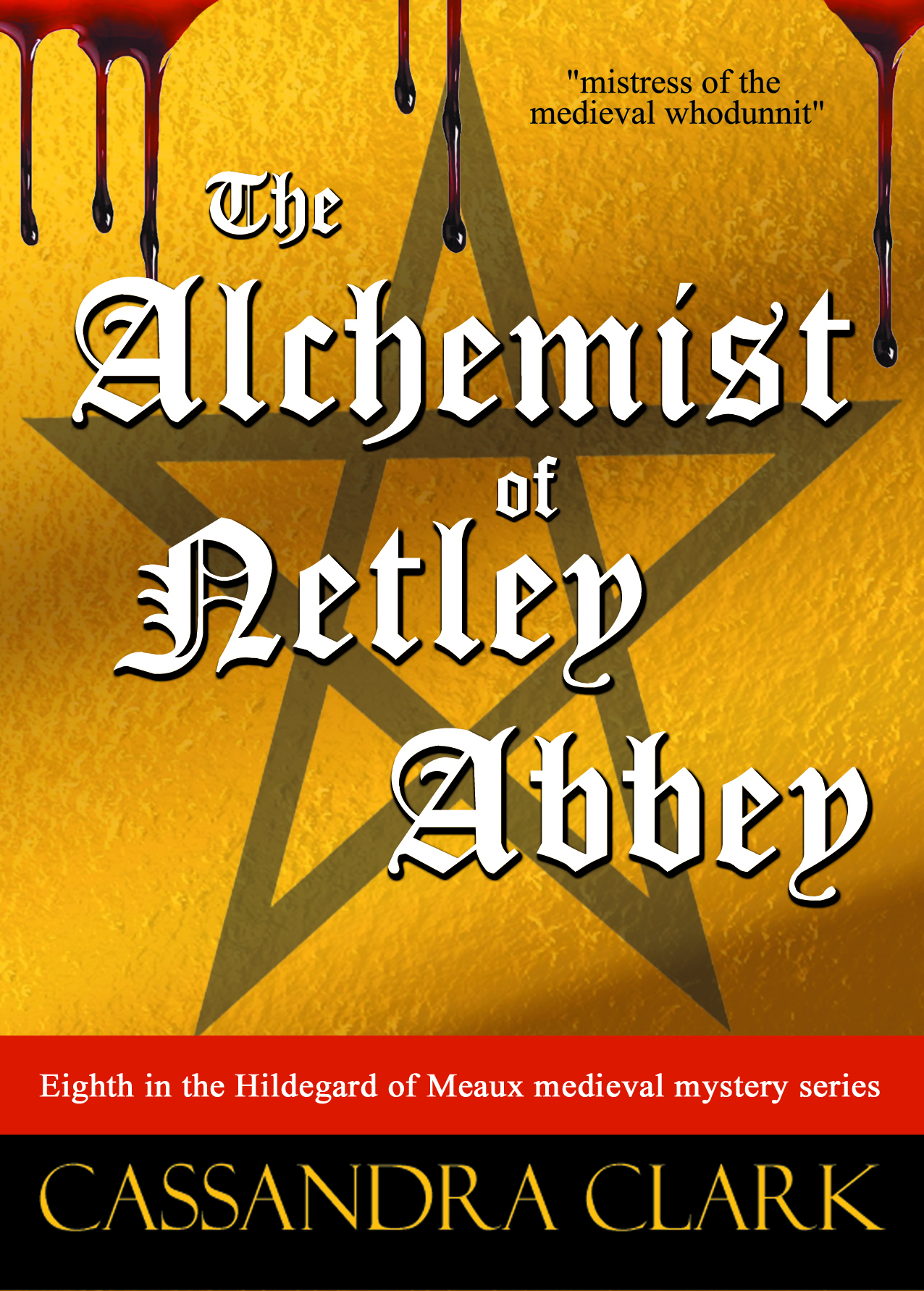It’s getting closer! I mean the day when the ebook of The Alchemist of Netley Abbey comes out. For some reason I’m finding this more exciting than the launch day of almost any of the other seven in Hildegard’s series. It feels as if there’s something really special about this one. It’s as if something extraordinary is about to happen!
I’ve also been reluctant to clear away my notes this time. I keep finding little stickies bearing snatches of dialogue which never made it to the final version – there was so much more I could have put in and I’ve cut such a lot. For instance, I became really interested in alchemy. In Christian Europe alchemists were nearly always men even though in the days of Ancient Greece women, such as the mathematician Hypatia, worked equally with men. Why did the Christian fathers clamp down on women’s activities? What were they afaid of? It has taken centuries for us to shake off the bonds of poor education and social stigma. I hope the generation of schoolgirls coming out into the world nowadays learn about our history as women and forge ahead in a way previous generations were unable to do. How different would science be by now if women had taken an equal role? What other lines of inquiry would have been followed? Would there have been a difference? Nobody can know, we can only speculate.
It’s for these sort of reasons I get really sick of all the nonsense about witches. I know it’s a bit of a hobby-horse of mine but it was a hot political issue and surely deserves more than to be an occasion for fake shivers of horror. At least in the late fourteenth century witch-burning was not an issue. It simply didn’t happen. Only later, in the schismatic period of the Tudor and Reformation wars of religion did it become a way of eliminating the enemies of orthodoxy. How easy it was to get rid of women who ‘mouthed off ‘ by burning them at the stake as witches! And dear old Wyclif died before they could get to him, although they did imagine it was a good idea to dig up his body and do nasty things to it.
The reign of King Richard II was relatively civilised in a way we might understand today. The first public burning of a heretic was not a women but a man – and it didn’t happen in Richard’s reign but later, when his regicidal cousin Bolingbroke snatched the crown, making it one of the first acts by the king the French always referred to as ‘so-called Hery IV.’ His unlucky victim was a man called William Sawtre and he was burned alive at Smithfield for refusing to accept the validity of orthodox religious belief. You could say it was a bit rich, coming from Bolingbroke/Henry, who himself murdered God’s anointed king. How unorthodox was that! Later, there were wholesale burnings of and by both Catholics and their opponents. But by now we’re in the world of the barbaric Tudors.
Such a lot has to be omitted in a novel. It’s not a history book, after all. I hope there’s enough about alchemy to make Hywel credible and to open the door to another aspect of that curious and exciting medieval world which (hobby-horse again) has been dropped from the National Curriculum.
Next time I should have a date for the launch. Watch this space!
 Now I know it’s live! Even before I found out for myself I heard from one of my lovely readers in the U.S. that they’ve just bought an ebook of The Alchemist of Netley Abbey. This must be the first in the entire world! Thank you, darling Barbara, you know who you are!
Now I know it’s live! Even before I found out for myself I heard from one of my lovely readers in the U.S. that they’ve just bought an ebook of The Alchemist of Netley Abbey. This must be the first in the entire world! Thank you, darling Barbara, you know who you are!
Recent Comments